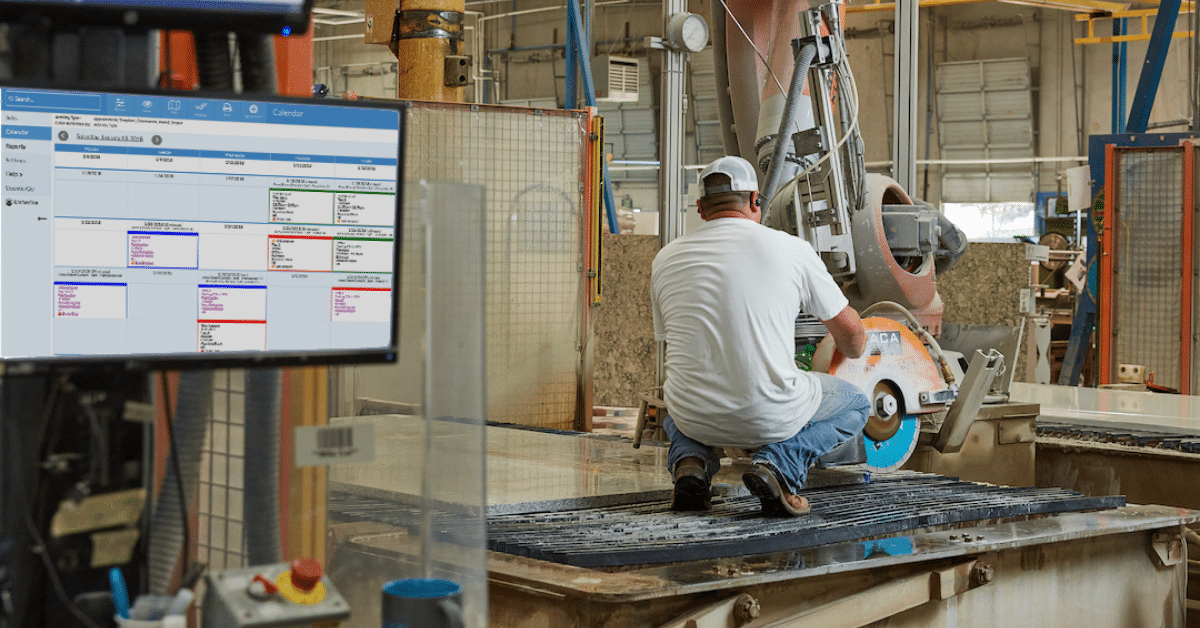You, my friend, are full of potential. There are many inspiring industry stories of folks starting in one role and evolving into another role that helps them reach their goals, whatever that may be. All you need is a foot in the door and the right mindset.
Let’s discuss some ways to start thinking about what you want out of your career and how to go about pursuing that, even when it seems impossible.
Why does growing my career matter?
If you are happy in your job and where you are at, then it probably doesn’t! But, for most folks, they want to keep learning and keep increasing their value in their workplace. It can be daunting and feel out of reach at times in trade jobs.
Typically, you would be highly skilled in one specific area but don’t let this hold you back. It’s mostly about your attitude and willingness to step out of your comfort zone. In fact, if you’ve worked in a variety of different roles, you usually have much more insight to bring to other roles.
For example, if you worked with CNC saw, you probably know pretty well how much time it takes to cut certain pieces. Who would benefit from that? A scheduler who can plan out a more efficient schedule of production.
Work on Your Hard and Soft Skills
The what skills?? Hard skills are the facts. The technical skills you have to bring to the job. Want to become an Operations Manager? Then you’d list your experience on the shop floor, experience working with a team, years of experience, etc. Of course, your experience and knowledge is important. You should be hungry to learn as much of these skills as you can to be well-rounded. However, these skills can often be learned where soft skills cannot be taught as easily.
Soft skills are much more important than they sound. Soft skills are vague undefinable abilities like organization, communication, and problem-solving. Think of skills you can’t get a certification in.
These sorts of skills are the ones that will help you stand out above other candidates. You may have 20 years in the industry, but if you aren’t adaptable to change or growth then you are a liability. Oftentimes, leaders understand that attitude is more important than technical skills.
Here are some examples of the primary soft skills countertop fabrication companies are looking for:
- Communication
- Problem solving
- Teamwork
- Flexibility
- Integrity
- Dependability
- Self-direction
💡Read more: Hiring for Attitude
Get to Know More People
Have you ever heard the saying, “It’s not what you know; it’s about who you know?” Well, it’s true! Yes, having the right skills for advancement is important, but it never hurts to have an in with someone looking to hire.
The more people who know what you have to offer and what your goals are, the more opportunities that will open up for you. Business owners have goals and respect others who have the drive to reach theirs as well. By meeting others in the industry, you’ll expand your network and connect with people who will help you along your journey. A great place to start is one of the Facebook groups for fabricators where you can ask questions, get advice, and laugh off some stress with others in the industry.
💡Tip: Attend industry events to learn more hard and soft skills and meet others
Work With a Mentor
Speaking of networking… Another effective way to work your way up in a countertop fabrication business is to work with a mentor. Typically, mentors are people who are farther along in their career than you are. They can teach you things about the industry, tips on how to advance your career, and maybe even teach you a few essential skills.
Like with networking, you can have a mentor from your company or from another company. However, it’s best if your mentor works at your company. That way if the right opportunity arises, they’ll be able to put in a good word for you.
💡Tip: Women in Stone has an awesome mentorship program
Take on More Responsibility
Take the time to talk to your manager. Tell them all about your career goals and how you want to work for the countertop fabrication business for the long term. Ask them for more responsibility or what you can do to help out. When they know you’re here to stay and you are showing initiative, they’ll give you more consideration when opportunities arise.
Also, there has to be some inefficiency you deal with every day. Think about how to resolve the issue and pitch the idea to management. Then, write up a job description that solves the problem and ask to fill the role. This shows management that you’re interested in more than just your position and that you know how to get things done.
💡Learn more about finding inefficiencies with this lean manufacturing series
Be a Team Player
Working for a company isn’t a solo sport. It takes the whole team from the initial sale to the install to make a countertop job a success. Understanding that you’re a part of a bigger picture is a great way to show management that you’re looking out for the entire team and, therefore, the company.
Alternatively, when someone achieves success, congratulate them on it! Being a team player is about being there for your coworkers during the bad times and the good.
Own Your Mistakes
Look, we all make mistakes. And it may seem counterintuitive to admit it, but I’m here to tell you that a good manager or boss will respect you more for owning up to them. Taking responsibility for your or your department’s mistakes shows you can be trusted to handle bigger tasks. You don’t just take the easy way out; you do what’s right. And that mentality goes a long way to help you work your way up in the business.
Raise Your Hand
In the end, one of the easiest and most often-overlooked ways to work your way up in a countertop fabrication business is to simply raise your hand. If there’s a position available that you are interested in, apply to it! Showing that you’re open to new opportunities is an easy way to let the folks in charge know you are eager to grow. Even if you don’t get that job right away, it sets you in the right direction.
Have you moved into a different role in your company? We’d love to hear about it!



